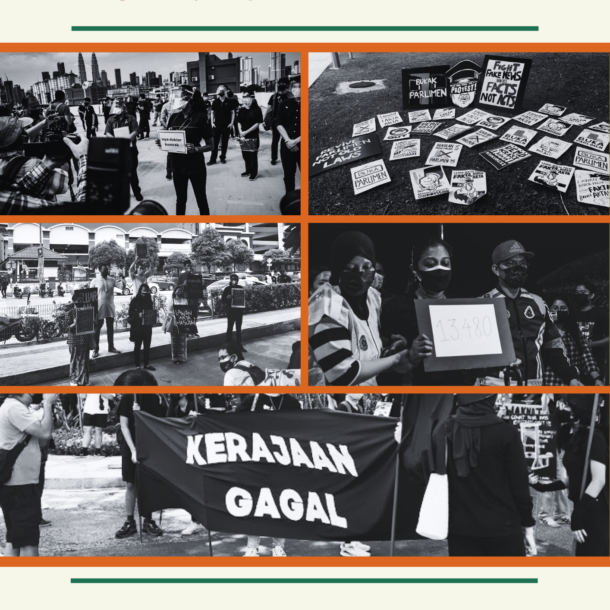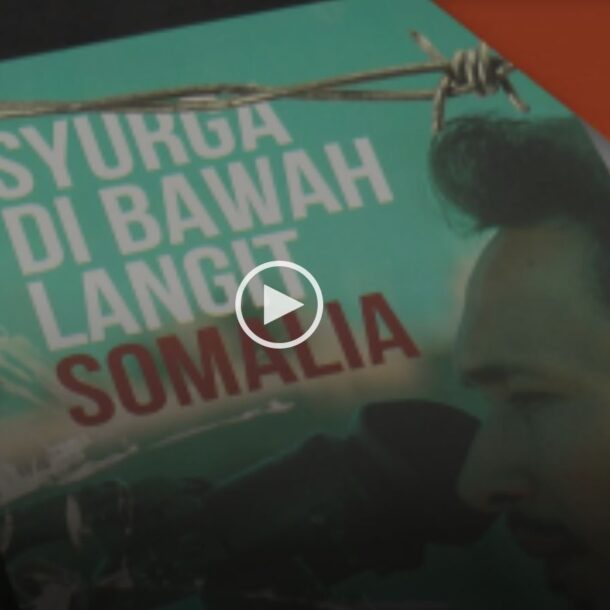
As the nation continues to struggle through a pandemic, a report released by the Centre for Independent Journalism (CIJ), today, revealed that 266 incidents involving individuals prosecuted by oppressive laws for exercising their right to free speech were recorded from January to November this year.
‘Incident’ is used as an umbrella term that includes cases or investigations, arrests and charges.
According to its Freedom of Expression (FOE) status report, the repressive laws, which were cited the most in order to investigate individuals were Section 233 of the Communications and Multimedia Act 1998 (140 incidents) and the Peaceful Assembly Act (PAA) 2012 (nine incidents).
While CMA 1998 criminalises improper use of network facilities or services, the PAA 2012 regulates public protests.
Other constraining laws listed by the report include Section 505 of the Penal Code, which criminalises statements conducting to public mischief (35 incidents); Section 504 of the Penal Code, which criminalises intentional insults with intent to provoke a breach of the peace (32 incidents); and the Sedition Act 1948, which criminalises discourse deemed as seditious (19 incidents).
Emergency (Essential Powers) (No. 2) Ordinance 2021, which criminalises “fake news” relating to Covid-19 or the Emergency Proclamation of 2021 (30 incidents) and the Official Secrets Act 1972, which criminalises the dissemination of information classified as an official secret (one incident) were also mentioned in the report.
The report further concluded that human rights defenders, artists, filmmakers, illustrators, and members of the media were some of the specific categories of persons targeted.
“We strongly believe that most of the incidents we observed this year did not warrant investigations, with some actions by the state being excessive and disproportionate in managing public order or peace,” the report stated.
Referencing the multiple arrests of political satire artist Fahmi Reza who had his devices confiscated besides being forced to give up the password to his Twitter account, the report noted that there were “no elements of harm, violence, or hate speech in his work that would ordinarily warrant action and restriction against such expression.”
The questioning of Freedom Film Network co-founder Anna Har and animator/artist Amin Landak over the film Chili Powder and Thinner, which was based on the true story of a boy experiencing police brutality was also mentioned in the report, along with the investigation into 20-year-old activist Sarah Irdina Mohammad Arif.
The report further highlighted that the freedom of peaceful assembly was subject to great threat this year, with organisers and participants experiencing various forms of cyberattacks, harassment, and intimidation, including being investigated, arrested, or charged by authorities.
“Action taken by authorities were often disproportionate as organisers and participants had taken proactive measures to adhere to standard operating procedures (SOPs) to mitigate the risks of Covid-19.
“Rather than taking a progressive and proactive role to facilitate protests, authorities instead reacted with heavy-handed measures to intimidate those involved in the action,” CIJ noted, adding that police action often led to greater Covid-19 risks.
Referencing the arrest of 31 participants of a candlelight vigil hosted by Sekretariat Solidariti Rakyat on August 19, CIJ pointed out the irony in forcing participants into crowded Black Marias for allegedly breaching Covid-19 restrictions, one of which calls for physical distancing.
The report also included several recommendations to the government, among which was to create a safe environment for robust civic discourse and healthy democracy.
“This can be done by refraining from using scare tactics and arbitrary applications of repressive laws to sanction and intimidate those who criticise, question, or belittle the government,” it said.
CIJ further called on the government to not focus on prosecution, but instead emphasise educating and disseminating public information countering alleged “fake news” as is being done by the Communication and Multimedia Ministry.
“The creation of an environment where the media can function with independence and no fear of repercussion for carrying out their reporting will be aided by the dropping of all investigations and a pledge to stop all future acts of adverse action against the media and journalists.”
Hoping to increase public awareness surrounding the topic of FOE in Malaysia, and the challenges in impacting change, the launch of the report was held at Nu Central Shopping Centre on December 11.
Held in conjunction with a celebration of International Human Rights Day 2021 with the theme of ‘Humanising Human Rights’ (Merakyatkan Hak Asasi Manusia), the event was led by CIJ and co-organised with nine other organisations.
The other groups involved were Article 19 Malaysia, Freedom Film Network, Kryss Network, Sinar Project, Sisters in Islam, Gerakan Media Merdeka, Suara Rakyat Malaysia, and the Malaysian Centre for Constitutionalism and Human Rights.
Besides featuring a photo exhibition in collaboration with The Biddys, a national photo-journalist group and Eyes That Speak by Buku Jalanan Chow Kit, the event also saw a line-up of performances, which reflected inclusivity and respect of all communities.
“In an increasingly shrinking democratic space, civil society organisations working on FOE are here to claim democratic spaces and to remind Malaysians and all alike that the freedom to express is the cornerstone of democracy,” CIJ said.
Source: The Vibes
